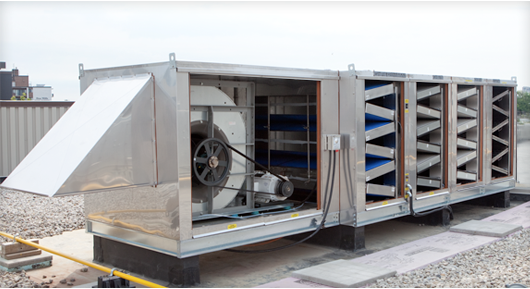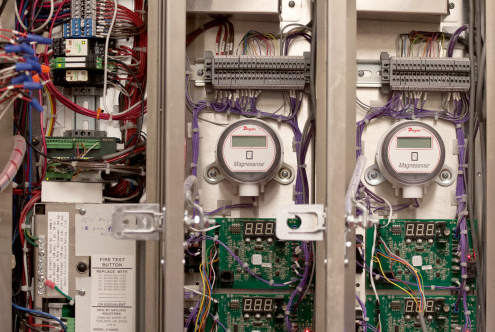
Pollution Control Unit
-
Conduct routine inspections of the pollution control unit to ensure it is functioning optimally and identify any potential issues early on
-
Thoroughly clean the pollution control unit, including filters, baffles, and other components, to remove grease, dirt, and other contaminants that can hinder performance.
-
Replace filters as needed to maintain effective filtration and airflow, ensuring that the pollution control unit continues to capture grease and smoke efficiently.
-
Perform airflow testing to verify that the pollution control unit is providing adequate ventilation and pollutant removal, making adjustments as necessary to optimize performance.
-
Inspect and maintain fans and motors to ensure they are operating smoothly and efficiently, lubricating moving parts and replacing worn components as needed.
-
Check the control panel and electrical components for signs of wear or malfunction, ensuring that the pollution control unit operates safely and reliably.
-
Clean and inspect ductwork connected to the pollution control unit to remove grease buildup and prevent blockages that can impede airflow and increase fire risk.
-
Implement odor control measures to minimize unpleasant odors emitted from the kitchen, ensuring a more comfortable and hygienic environment for staff and customers.
-
Ensure that the pollution control unit complies with relevant regulations and standards, providing documentation and recommendations for any necessary upgrades or modifications.
-
Provide 24/7 emergency repair services for pollution control unit breakdowns or malfunctions, minimizing downtime and ensuring continuous operation of the kitchen ventilation system.
-
Offer expert advice and recommendations for improving the efficiency and effectiveness of the pollution control unit, based on the specific needs and requirements of the commercial kitchen.

